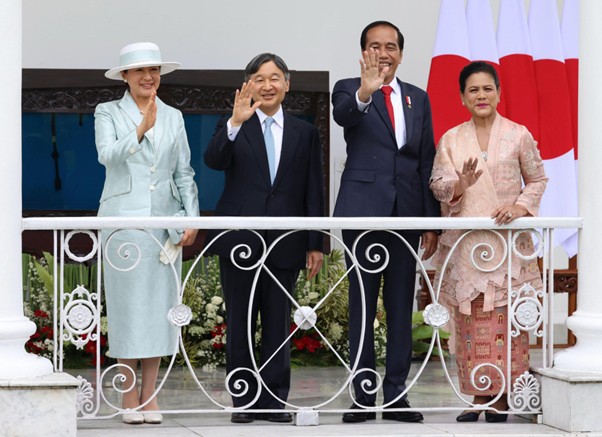The Indonesia–Japan trade agreement, formally termed the Indonesia–Japan Economic Partnership Agreement (IJEPA), signifies a pivotal development in the progression of bilateral relations between two of Asia’s leading economies. The agreement, initially signed in 2007 and recently amended in 2023, seeks to enhance economic collaboration, liberalize trade, and bolster investment between Indonesia and Japan. As Indonesia aims to enhance its economic resilience, broaden its manufacturing sector, and integrate more effectively into global value chains, the implications of this trade agreement are extensive. The improved IJEPA enables Indonesia to gain advantages in critical sectors such as manufacturing, energy, infrastructure, and human capital development, domains vital to its economic progression.
The Indonesia–Japan trade agreement may significantly augment Indonesia’s export potential. Japan, as one of the globe’s major economies, provides Indonesian exporters with access to a high-income, consumption-oriented market. The amended IJEPA substantially reduces or eliminates tariff barriers on several Indonesian products, including automobile components, textiles, palm oil derivatives, and fishery products. The enhanced market access is anticipated to invigorate production in export-driven sectors, especially manufacturing. Indonesia’s aspiration to reduce reliance on raw material exports signifies a strategic shift.
It promotes domestic value enhancement and industrial advancement, essential measures for transitioning Indonesia from a resource-dependent economy to an industrialized one.
Furthermore, the agreement strengthens the significance of foreign direct investment (FDI) as a crucial driver of economic growth. Historically, Japan has been a primary source of FDI for Indonesia, particularly in the automotive manufacturing, electronics, infrastructure, and renewable energy sectors. The IJEPA promotes a more predictable and investor-friendly environment by providing clearer investment protection rules, streamlined regulations, and effective dispute resolution systems. This is expected to stimulate additional Japanese investment in Indonesia, especially in industrial estates, electric vehicle (EV) production, and energy transition initiatives. Indonesia’s ambition to establish itself as a regional electric vehicle hub coincides with Japan’s strategic objective of diversifying its supply chains, especially in light of evolving geopolitical tensions in East Asia.
A similarly significant, but frequently overlooked, aspect of the trade agreement is its focus on the mobility of human capital. The amended IJEPA has stipulations for the admission of Indonesian skilled laborers in Japan, including within the caregiving and healthcare industries. Japan’s elderly demographic and declining labour force have resulted in an escalating need for foreign caregivers, a demand that Indonesia is increasingly equipped to fulfil. The accord enables training initiatives, certification standardization, and reciprocal acknowledgment of credentials. This labour mobility not only provides chances for individual Indonesian workers to attain higher pay but also produces remittances that enhance the home economy.
This cultivates skill transfers and reinforces bilateral relations beyond economic exchanges.
From a macroeconomic perspective, the Indonesia–Japan trade deal is expected to improve Indonesia’s balance of payments. With the rise in exports to Japan and an increase in foreign direct investment inflows, the current account is anticipated to improve, consequently bolstering the stability of the Indonesian rupiah. The agreement’s focus on openness, regulatory coherence, and customs facilitation decreases transaction costs, hence improving the competitiveness of Indonesian enterprises in global markets. These advantages are especially prominent as Indonesia endeavours to recover from the economic repercussions of the COVID-19 outbreak and manoeuvres through a convoluted global economic landscape characterized by supply chain disruptions, inflationary pressures, and monetary tightening in developed economies.
The trade agreement is not devoid of obstacles. Opening trade with a technologically superior partner such as Japan subjects domestic industries to heightened competition. Industries including steel, electronics, and advanced manufacturing may face competitive challenges without policies that enhance productivity, promote innovation, and invest in workforce development. Insufficient preparedness may heighten disparities between globally integrated corporations and smaller domestic businesses.
The Indonesian government must integrate trade liberalization with specific industrial policy, infrastructural investment, and affordable financing access for small and medium-sized firms (SMEs).
The geopolitical aspect of the Indonesia–Japan trade agreement is also significant. Amid escalating U.S.–China tensions and the reorganization of global supply networks, Japan’s involvement with Southeast Asia has assumed a more strategic nature. The enhancement of economic relations with Japan offers Indonesia a counterbalance to its reliance on China, facilitating the diversification of trade and investment alliances. This diversification bolsters Indonesia’s strategic autonomy and allows it to assume a more significant role in regional economic and security frameworks, including the Regional Comprehensive Economic Partnership (RCEP) and ASEAN structures.
The IJEPA may facilitate Indonesia’s ecological change. Japan has committed to assisting Indonesia’s energy transition via technology transfer, green financing, and infrastructure development. This encompasses collaboration in the advancement of low-carbon technology, intelligent grids, and sustainable urban transportation. Indonesia possesses significant renewable energy potential, especially in geothermal, solar, and hydropower, and Japanese investment and expertise could be pivotal in realizing this promise. Furthermore, partnership according to the agreement may assist Indonesia in achieving its climate objectives outlined in the Paris Agreement and facilitate a transition to a more sustainable growth paradigm.
The Indonesia–Japan trade agreement represents a significant advancement in Indonesia’s economic progress. It supports trade liberalization, attracts superior investment, enhances human capital development, and aligns with overarching strategic goals of industrialization and sustainability. The potential benefits are substantial, but Indonesia’s ability to actualize them depends on its domestic policy responses. The government must guarantee that institutional capacity, regulatory reform, and infrastructural preparedness develop concurrently with the need for a more integrated economic partnership. If administered effectively, the IJEPA can function not just as a bilateral trade agreement but also as a strategic framework that advances Indonesia towards a more dynamic, inclusive, and resilient economy.







